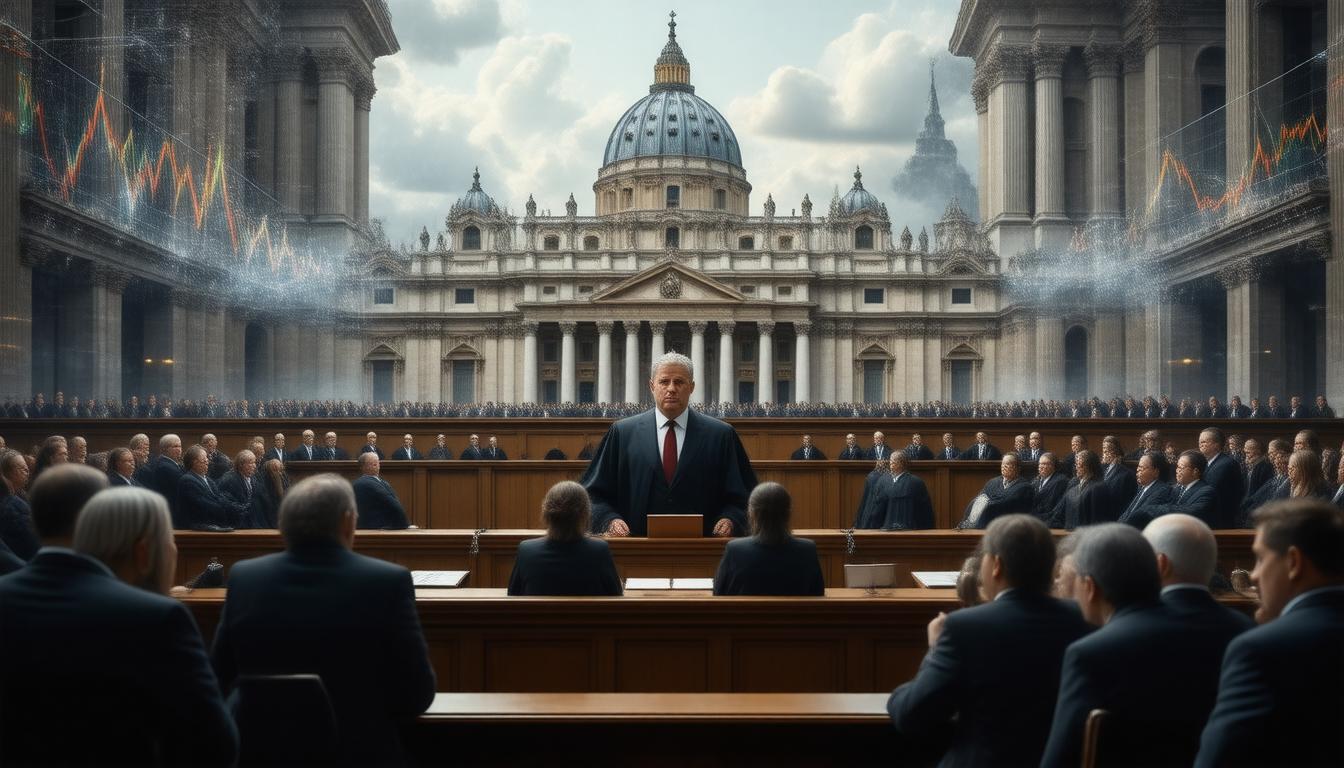The recent ruling by a British High Court regarding financier Raffaele Mincione marks a pivotal moment in an ongoing legal saga involving the Vatican. The court addressed claims relating to a controversial £350 million investment in a luxury property on Sloane Avenue, London, which had previously led Mincione to be convicted by a Vatican tribunal for alleged fraud against the Holy See involving excessive fees and commissions. While the judgment clarified that Mincione acted without dishonesty, it raised questions about his actions and moral obligations towards the Vatican. This case not only impacts Mincione’s reputation but also sets a significant legal precedent for the Vatican, which has faced scrutiny over its financial operations.
Key Takeaways
- The British High Court’s ruling does not exonerate Mincione of all charges but clarifies he did not engage in illegal activities.
- Mincione’s case marks a significant precedent as the Vatican is held accountable in a foreign legal system.
- The ruling highlights a conflict of interest where Mincione prioritized personal gain over the Vatican’s financial integrity.
Background of the Vatican Investment Case
In November 2024, a significant ruling by a British High Court addressed the complex case surrounding financier Raffaele Mincione and the Vatican regarding a contentious investment in London. The court’s decision came after Mincione was previously convicted in December 2023 by a Vatican tribunal for his role in a €350 million investment in a property on Sloane Avenue, which raised eyebrows over claims that he defrauded the Holy See through hefty fees and commissions. Importantly, the court judged that while Mincione’s actions could not be labelled as made in ‘good faith’, he was neither dishonest nor engaged in any illegal endeavours. It recognized 29 of Mincione’s 31 claims concerning the investment, while also reinforcing the Vatican’s right to scrutinize Mincione’s integrity amidst mounting concerns over his prioritization of personal business interests over the Vatican’s expectations of professional conduct. In a statement reflecting on the court’s findings, Mincione expressed his relief, interpreting the ruling as a vindication against allegations of dishonesty and fraud. This case also represents a notable development in legal proceedings surrounding the Vatican, marking the first instance where it faced litigation in an external jurisdiction, underscoring the ongoing scrutiny and investigations into financial practices within the Vatican, particularly concerning this troubling investment scheme.
Implications of the Ruling on Mincione and the Vatican
The British High Court’s ruling not only highlights individual culpability but also raises broader implications for international legal frameworks involving religious entities. The court’s determination that Mincione’s actions were not undertaken in ‘good faith’ suggests a need for enhanced transparency and ethical guidelines for those managing investments for religious organisations worldwide. This case could catalyse further scrutiny of financial practices within the Vatican and similar institutions, potentially leading to reforms aimed at safeguarding such entities from predatory business practices. Additionally, the ruling presents a pivotal moment in the accountability of financiers who engage with religious entities, as it underscores the necessity for fiduciary responsibility and adherence to high ethical standards. As legal scholars and financial analysts dissect the implications of this landmark ruling, the Vatican may need to reassess its investment policies and oversight mechanisms to avert such controversies in the future, thereby working towards restoring public confidence in its financial stewardship.





